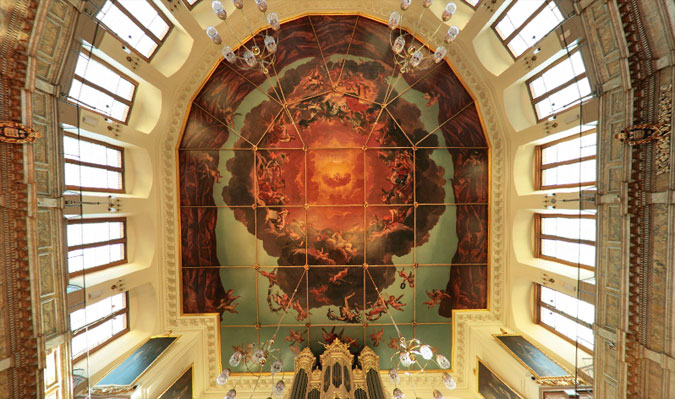
Andrew Brown (yes he is at it again) has an article in which he asks if Humanism is a religion without a church.
OK, lets get a few quick points out of the way …
- The short simple answer is “no” it is not (but since you have a bit of common sense you had most probably worked that out already)
- The context for Mr Brown’s article is that he attended the World Humanist Congress that took place in Oxford last weekend
- Andrew is himself an atheist
There are several other additional points to also consider
- The role of the media is not to stick to the truth, but rather to make money for their proprietors, so articles that will provoke will be welcomed
- Andrew is rather good at stirring up controversy
OK, so what is he telling us?
The World Humanist Conference in Oxford at the weekend struck me as a completely religious gathering, even though it is predicated on atheism. If it hadn’t been for the words of the sermons, we might have been at any Protestant missionary society.
“COMPLETELY RELIGIOUS” … !! … except for the rather obvious observation that it is not. There are no gods involved, no dogma, no clerics, no supernaturalism at all, so in what way is it religious? He explains …
Part of this was the architecture.
Seriously!!
One can only wonder if he noticed that the painting on the ceiling was in fact not religious art at all, but was secular. The plenary sessions were held in the Sheldonian theatre, a grade 1 listed building that has an allegorical story depicted in the ceiling painting that shows Truth descending upon the Arts and Sciences and expelling ignorance from the University. What a pity it cannot do the same for Mr Brown’s article.
Part of it was the people: lots of beards, formidable middle-aged women and younger gay men.
So beards, being gay, or middle aged equates to it being a religious gathering? I guess that implies that every local tennis club is also a religious gathering.
He proceeds to talk a bit about who he met and then quickly gets back to the question … Is Humanism a Religion? … and claims …
I think the answer is clearly that it is. Emile Durkheim, who pretty much founded the scientific study of religion, defined it as “a unified set of beliefs and practices relative to sacred things, that is to say, things set apart and surrounded by prohibitions – beliefs and practices that unite its adherents in a single moral community called a church”.
Sigh! … so apparently embracing a non-religious philosophy and rejecting all religious supernatural claims makes you religious? No it does not, this is nonsense on stilts. To be strictly accurate, the way he defines the word “religious” is the issue here, the problem is that it is not how the word is commonly used or understood – specifically believing in and worshiping a supernatural entity.
What bothers me about this is that theists will of course leap on this and cite it as “evidence” that non-belief is itself a belief, and so we once again would be back to making the old observation that if indeed non-belied is a belief then “off” is a TV channel and “not running” is a sport.
OK, so if you are in fact still agreeing with Mr Brown, then pause and consider the thought that humanism is rooted in reality and in a rather stark contrast, beliefs tend to be resting upon myths and fantasy. In other words, they are not the same at all, or to put that another way, it is just like religion, but without the gods, books, temples, prayers, hymns, and ideology.
If indeed you wish to go with his definition of religion, then consider that else qualifies? Basically almost any group of people with a common interest who meet together … book clubs, bowling clubs, writers clubs, etc…
What is perhaps tragic here in so many ways is that there were exciting, inspiring, amazing individuals who had astonishing stories to tell at this conference. We walking with people who truly had made the world a better place and when faced with extreme adversity they had the courage to rise above such threats and demonstrated what humans are truly capable of, and yet what he opted to write ignores most of that and instead he makes silly claims such as this …
Bringing sacred values such as human rights and democracy into dialogue threatens their sacredness
No, that is simply not a factual statement by any measure at all. Humanism is very much about embracing and promoting universal human rights, the entire theme of the conference was freedom of thought and freedom of expression. I truly struggle to understand how he missed that and instead suggests that a dialog of such ideas (which is what the conference was all about) is a threat.
It is about here that I once again cast up eyes up to the heavens … not not to a god, but to the painting that was above us that illustrated Truth descending to expel ignorance.
Ha, point made, but the “Truth” descending upon the arts and sciences to dispel ignorance was (originally) a religious message from Archbishop Sheldon with a capital T. I’m fine with the idea that humanism is not (needn’t be) a religion, but am increasingly sad that humanists reject any dialogue about values it does and doesn’t share with religions, when the similarities are pointed out. http://www.psybertron.org/?p=7274